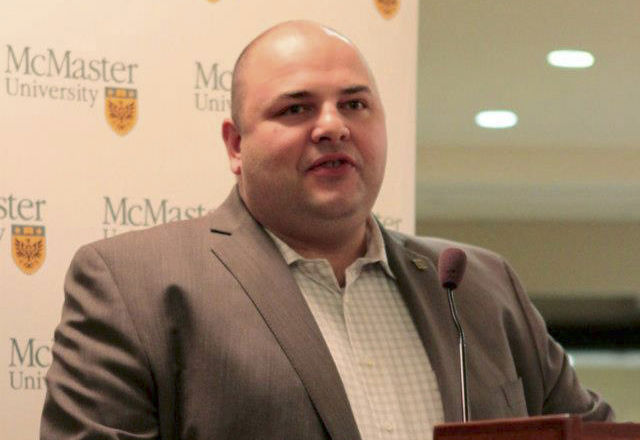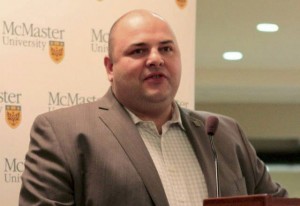PCs lay out post-secondary education plans


The Progressive Conservative (PC) Party of Ontario has some concerns about the state of post-secondary education in the province and, as a result, they are recommending a series of dramatic changes. Released on Tuesday, the PC’s white paper recommends that student financial assistance be linked to grades, that many prospective students should seek college degrees instead and the level of university funding be determined by the number of students who get jobs post-graduation.
This paper was released just one day after Ontario Premier Kathleen Wynne announced her new cabinet, which included the move of Brad Duguid from minister of energy to heading up the ministry of training, colleges and universities.
The possibility of an election in Ontario has dominated political commentary since Dalton McGuinty announced his decision to step down as premier in October. PC leader Tim Hudak, along with Cambridge MPP Rob Leone — the training, colleges and universities critic — urged the Ontario government to rethink the way it funds and monitors post-secondary education for students.
An inflated number of unemployed graduates and struggling job returns on degrees are factors.
“The key will be incenting excellence, harnessing market forces, encouraging specialization and being honest,” stated the paper in its introduction. “We cannot ignore the fact that increasingly university students end up in colleges, after accumulating significant student debt. We need a culture shift in our system.”
The paper calls for the adoption of three-year applied college degrees so some students seek college education as opposed to university once they complete high school. It claims that these degrees will aid the technology, construction and other trades industries. Since its release, the paper has received some criticism from student groups, such as the Ontario Undergraduate Student Alliance (OUSA).
“Our initial thoughts are that there are a couple of things in there that we also have concerns with,” explained Rylan Kinnon, the executive director at OUSA. “But we also have some concerns with some of the recommendations in the paper and some of the issues that it brings up as well.”
Kinnon noted that the most concerning element of the paper was the emphasis on linking financial assistance to grades. Essentially, if a student has better grades they will receive better returns on loans.
The focus of education, according to the paper, should be on “merit” when it comes to student financial aid.
“If you’re saying to these students, ‘Well, your academic performance is poor so you’re going to have less financial assistance,’ the end result may be that these students have to work even longer hours and their academic performance may suffer even more,” said Kinnon.
The paper also recommends the removal of the 30 per cent tuition grant that was released last April, if the PCs were to be elected into power.
Another suggestion from the paper is to pose higher tuition fees for “elite programs” and focusing primarily on teaching as opposed to research for university professors. The recommendation stated, “Universities should embrace teaching-only faculty as a means of improving learning quality and the student experience.”
“We like the emphasis on improving the quality of teaching,” Kinnon said. He added, however, that OUSA’s recommendation is just increasing teaching time instead of removing the research component of university teaching.
Furthermore, funding for universities, according to the paper, would be determined by the number of jobs a particular university’s graduate get. The PCs also want student unions and associations to be held accountable and to allow students the ability to opt out of their fees on the basis of political advocacy.
“We would be hesitant to recommend the government to fund institutions based on graduate labour market outcomes,” added Kinnon.
Ontario legislature is expected to return on Feb. 19. Leone was unavailable for comment Tuesday afternoon.

